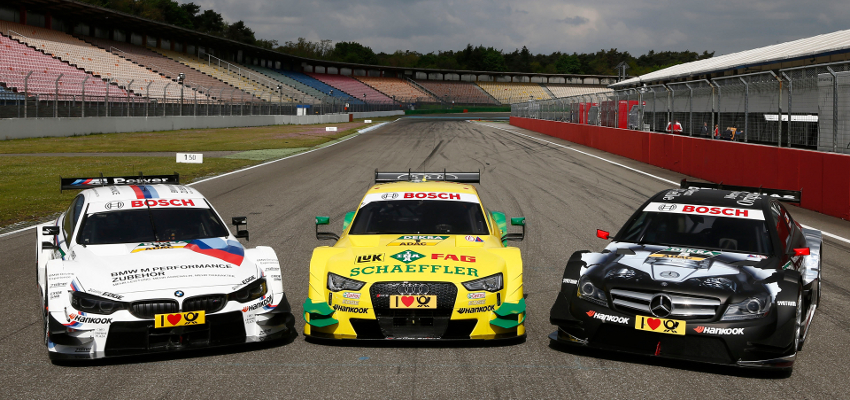 Bosses of the Deutsche Tourenwagen Masters have revealed changes to the sporting regulations involving option tyres, pit stops, qualifying and DRS for the forthcoming season.
Bosses of the Deutsche Tourenwagen Masters have revealed changes to the sporting regulations involving option tyres, pit stops, qualifying and DRS for the forthcoming season.
First introduced in 2013, the option tyre may now only be used for up to 50% of the race, with the rules also changed such that drivers now only have to make one compulsory pitstop per race instead of two as used in 2013. The rules have been introduced in order to simplify the experience for fans.
As in the previous season, pitstops cannot be made in the first third of a race or during a safety car period.
Significantly, performance ballast is to be introduced for the 2014 season. This means that the winning driver, and any driver who finished inside the top ten from the same marque as the winner, will be forced to carry an additional 5 kg of weight for the following race. Any driver from the same manufacturer who finished outside the top ten will carry an additional 2.5 kg for the next race.
There is no change to the drivers of the second-best manufacturer in each race, whilst the drivers of the third-best manufacturer who finished inside the top ten will see a reduction of 2.5 kg for the following race. Those drivers for the third-best marque who finished outside the top ten will be granted a weight reduction of 5 kg for the following race.
Qualifying will also see a revamp in 2014 due to pressure being put on the series by TV bosses in Germany to reduce the programme length. The qualifying format will now consist of three segments as follows:
- Q1 will last 13 minutes and will be contested by all 23 drivers, with the five slowest being eliminated;
- Q2 will last 11 minutes and will be contested by 18 drivers, with the ten slowest being eliminated;
- Q3 will last 11 minutes and will be contested by the fastest eight drivers, with no limit on the number of laps allowed.
The DTM’s Drag Reduction System (DRS) can now also be used until the end of each race.
There is also a tightening up of the DTM’s engine regulations, with each manufacturer now allowed only two replacement engines per season instead of one per team.
Each of the ten engines for Audi and BMW (and nine for the smaller Mercedes-Benz operation) have to be used in at least four events. There is also a restriction of just three engines per driver over the course of a season.
“The rule changes were developed by us manufacturers in cooperation with ITR,” explained BMW Motorsport Director Jens Marquardt. “I’m convinced that they will represent progress for DTM.”
